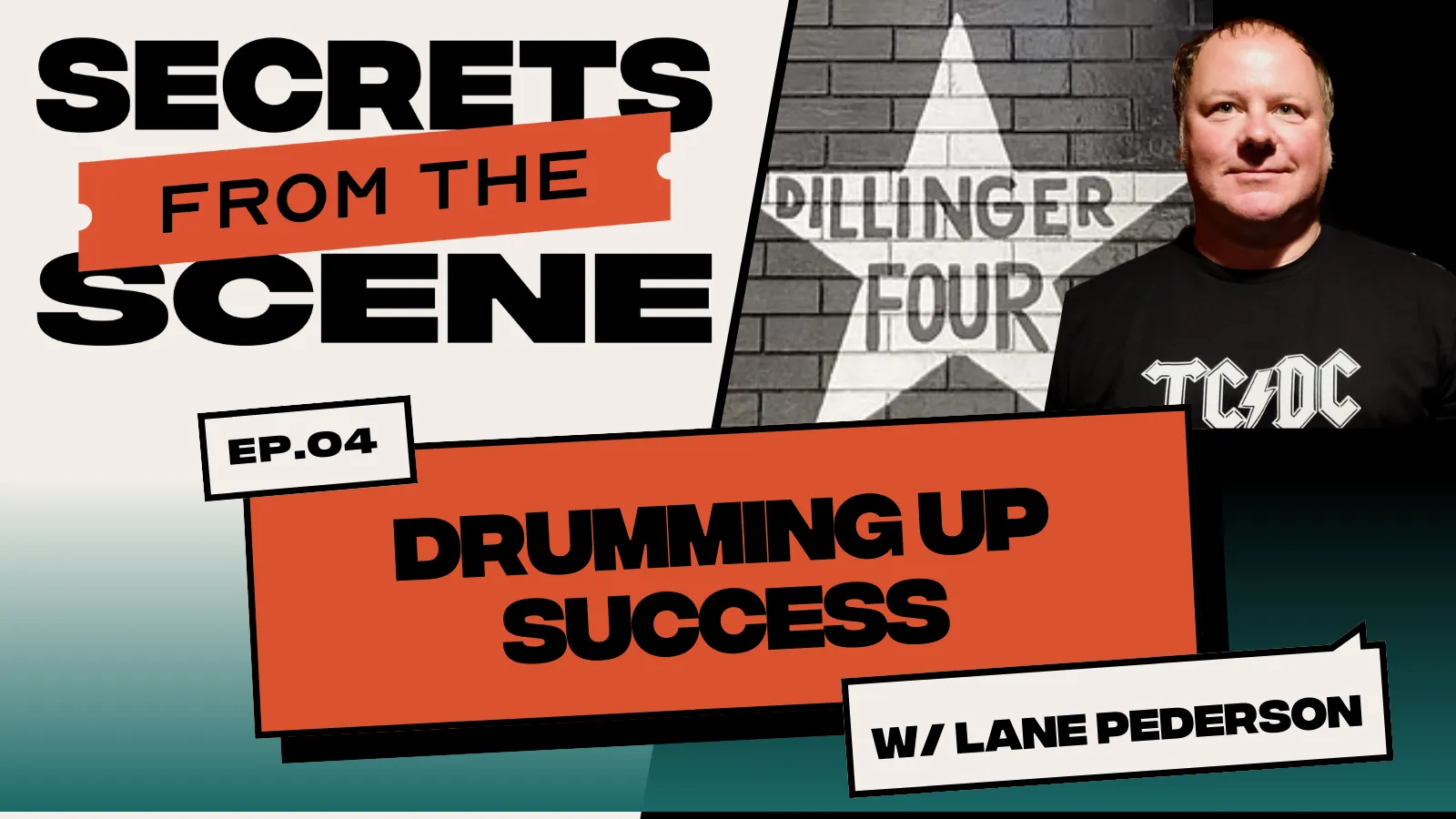Show Notes
Lane Pederson is a man of many talents. He's the drummer in the punk band, Dillinger Four, the owner of a local drum shop, Twin Cities Drum Collective, and oh yeah, he's also a clinical psychologist and an author.
This episode covers the nuances of building custom drums and the value behind investing in and personalizing your gear, balancing multiple pursuits in your career, the importance of community in music, and a little history on Dillinger Four and the origins of Twin Cities Drum Collective.
Lane drops a lot of valuable tips ranging from customizing your drum kit to performing live on stage. He also shares how the Twin Cities Drum Collective is creating a unique place for drummers to not only shop, but to learn, hang out, and build community through drum lessons, workshops, and even drum set karaoke nights.
Whether you’re specifically interested in his custom 651 line of drums, a fan of Dillinger Four, or a drummer that’s looking for some tips or lessons, this episode is going to be worth the listen. Enjoy!
watch now on YouTube:
Episode Links and Mentions
🌐 Gordy Knutson (drummer for Steve Miller Band)
🌐 Mark Joseph (The Last Waltz Production and The Big Wu)
🌐 Michael Birawer (Artist featured on custom snare drum)
🌐 Dave King (drummer for The Bad Plus, Happy Apple)
🌐 Todd Trainer (drummer for Shellac)
🌐 Todd Sucherman (drummer for Styx)
🌐 Jason Orris (The Terrarium, Owner)
🌐 Durry
🌐 Daniel Staddon (drummer for Maiden Dixie)
🌐 Luke Rauch (drummer for Modern Life Is War)
🌐 Derek (drummer for [Nightbirds)
🌐 Kyle Manning (drummer for Off With Their Heads)
Connect with the Guest
🔗 email: tcdrumcollective@gmail.com
🔗 website: Twin Cities Drum Collective
🔗 TC Drum Collective on Instagram
Featured Song: "Folk Song."
Connect with Me
Give Feedback
📬 Send me a message: stephen@secretsfromthescene.com
💬 Suggest a guest or topic: podcast@secretsfromthescene.com
🎙️ Brought to you by:
--------------------------------
Thank You
This podcast is made possible by the hard work, expertise, and commitment of my team:
Max Greene and Joey Biehn. I'm forever grateful.
--------------------------------
Theme Music: "Thankful" Courtesy of LUEDVIG

